Tom Kepler's Blog, page 17
May 19, 2015
Re-retiring . . . or a Second Retirement
 Yes, I'm retiring at the end of May from my position at Maharishi School as news writer and social media support.
Yes, I'm retiring at the end of May from my position at Maharishi School as news writer and social media support.I'm enjoying the countdown, and I'm making plans.
Some have asked, "What are you going to do?"
Well, I plan to continue engaging in life-supporting activities. I'll just have more time and choice as to what those life-supporting activities will be. To answer one question: no, I won't just be sitting around doing nothing. If I'm "doing nothing," it will be the productive "nothing" of meditation. Even in retirement, TM will still be a useful and effective preparation for activity.
Activities:
reading and writingbeing supportive of my wife's new businessbeing a good parent and grandparentgardeningbicycling and bike campingI have a few other possibilities, but first I want to focus on self and family. I've enjoyed my job this year, but there are some things I want to do that are more difficult when I have to show up to work five days a week. Bicycling and gardening, for instance. When the weather is right, I want to be able to take off, even if it's a Tuesday or Wednesday. That will be an enjoyable freedom.
So . . . this week and next week. More time for this blog, too. Good thoughts to my co-workers, and happy trails ahead.
Copyright 2015 by Thomas L. Kepler, all rights reserved

Published on May 19, 2015 14:45
May 9, 2015
I've Enjoyed Being a Journalist
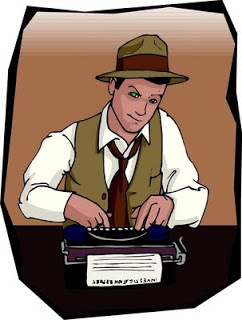 I suppose writing news for Maharishi School makes me more a press agent than a journalist since I'm writing press releases often for the media, but I still prefer journalist since I'm using the 5W + how for accuracy and detail. Besides, journalist is more Indiana Jones; press agent is more James Boswell.
I suppose writing news for Maharishi School makes me more a press agent than a journalist since I'm writing press releases often for the media, but I still prefer journalist since I'm using the 5W + how for accuracy and detail. Besides, journalist is more Indiana Jones; press agent is more James Boswell.I could also be called a professional blogger, even though I'm not living off my own business blog. Most of what I write is for Maharishi School's website blog, and when I shuffle pieces off to the media, I rewrite if necessary to a more conservative style and tone. (That's not usually necessary for sports, though! "Pioneers Crush Trojans!")
One result of this year's news writing for marketing is that I've worked with more everyday prose on the skill of writing for a particular effect. I write an article to motivate people to come to an event or to participate in a fund-raiser or to admire a student's achievement. Getting across the facts is essential, but also essential is having the words produce a subtle but real emotional response. Honing the prose to hone a reader's response has been a rewarding and illuminating experience.
An example of using detail to hone readers' response is the recent article "Spring Gala 'Iron Chef' Competition." Yes, I wanted to provide the basics of describing the contest and who won, but I also wanted to provide detail that revealed the expertise of the chef and, therefore, the success of Maharishi School's enrichment elective cooking program. I decided to accomplish this by using the winner's description of process and ingredients, allowing the specificity of detail to indicate competency. I think that worked.
Writing Maharishi School alumni profiles was also another experience in writing for an effect. In the profiles, my job was, in about 150 words, to project success, fulfillment, and expertise--that these alumni are in the "top of their game" in their fields. This, of course, wasn't a stretch since they are experts, innovators, and role models of how to succeed in making the world a better place. However, projecting this in 150 words or fewer was an excellent exercise in "less is more." It was fun to write the rough draft and then to begin leaning down the writing. What words could I eliminate and still say the same thing? How could I concentrate meaning? What events, awards, and activities really portrayed dynamic, successful interaction in a particular field?
Focusing on the connotative elements of language is not a new experience for me. Especially when writing poetry, but with all creative writing, the connotative flavors of a word are just as important as the denotative exactness. Working with this reality, though, in non-fiction news was a new experience, and I think I'm a better writer for that experience.
I always told my students that writing was a skill that improved with practice. And dang me if it ain't true!
Copyright 2015 by Thomas L. Kepler, all rights reserved

Published on May 09, 2015 09:45
April 17, 2015
The First Sentence of My Next Novel
 The night before last, lying in bed and drifting off to sleep, I sat up and said to my wife, "I'm writing something down." I walked to the kitchen, clicked on the light, and wrote a sentence.
The night before last, lying in bed and drifting off to sleep, I sat up and said to my wife, "I'm writing something down." I walked to the kitchen, clicked on the light, and wrote a sentence."Nice that you're thinking about your next book," my wife said when I returned.
No, I'm not going to write the sentence here. It will probably change. It's about a trail in the mountains, sounds echoing off the walls of the ravine.
What are the sounds?Why is the character in the valley?What is coming his way?It was good to start. For this novel I want to write a more substantial overview, even though I've written the first sentence already. I'll probably write more images and scenes as they come to me.
I've got about 6 weeks of my job left. Good things happening. The light in the valley is lambent with possibility.
Copyright 2015 by Thomas L. Kepler, all right reserved

Published on April 17, 2015 03:39
April 14, 2015
Thank you, Holly Moore
 This is what my Facebook friend and former neighbor posted on Facebook the other day:
This is what my Facebook friend and former neighbor posted on Facebook the other day: That half hour after storms when the greens are so green and the retreating rain clouds are so blue, and the cottonwoods look like white lace against the sky with their bright red catkins hanging from the tips of branches, and the red-winged blackbirds are posed perfectly on the pollen blanketed cedars? Yeah. That was my dogwalk this morning.Thank you, Holly, for the beautiful inspiration. And the word inspire, or course, literally means "to take in spirit."
Spring is that time of year where we are reminded, where we are infused with dynamism arising from silence--spring arising from winter. Thank you, Holly, for the beautiful inspiration.
My wish is that we all take in Spirit, that this spring we find the greater reality--that we live this spring as just one aspect of the Wholeness, that the wave is just one manifestation of Ocean.
The beauty of bright red catkins hanging from the tips of branches! The beauty of the bright! The beauty of the red! The beauty of the branch and the tree and the earth from which life grows! The sap within the catkins, within the branches, the essence of it All!
Thank you, Holly, for the beautiful inspiration. That was not a dogwalk you took, rather, a Godwalk.
Copyright 2015 by Thomas L. Kepler, all rights reserved

Published on April 14, 2015 04:12
March 18, 2015
Sons of Anarchy: Over 60 Hours of Tragedy
 It's gripping, it's addicting, it's tragic, it's FX's series Sons of Anarchy.
It's gripping, it's addicting, it's tragic, it's FX's series Sons of Anarchy.Loosely based on Shakespeare's Hamlet, Sons of Anarchy is about Jax Teller, the "prince" of the motorcycle club Sons of Anarchy, trying to deal with the problems of his kingdom: his father's death, his mother's moral ambiguity, and his own life's path.
The production, direction, casting, and acting of the series is a black hole of entertainment that produces a gravitas that cannot be denied or resisted. One cares for the principal characters; one appreciates the unfoldment of the flaws and strengths of the "crew"; one wallows in the dark humanity of the series, hoping and praying for light.
The sun does not break through the clouds of violence and despair.
The classic purpose of tragedy is for the audience to experience a tragic hero's attempt to rectify his screw-up, to heal his tragic flaw, and to purge the kingdom of the "rot" that he has created. Sons of Anarchy fits this mold, with Jax Teller's attempt to break free of the motorcycle gang's evil ways and to follow the vision of his dead father. Jax is the Hamlet of the series, the son of the gang's founder. There is a Claudius, a Gertrude, an Ophelia, a Polonius, a Fortinbras, and a "Ghost" of the father presented as a journal that Jax finds. A sense of fate and a subtle sense of the supernatural flavors the series.
In tragedy, the audience is supposed to leave the theater purged of dark emotions, having experienced a catharsis and realizing that one must be a better person, live a better life, and leave a better mark upon the world. This is the playwright's challenge, to cleanse the audience with a bitter brew of one afternoon's or evening's partaking. "I can do better, be better," thinks the audience upon leaving the theater, the stage littered with bodies.
After 60 hours of hoping the characters in Sons of Anarchy would get it right and extricate themselves from a morass of violence and deceit, when that doesn't happen, the end result is not rebirth but depression. In the end, even though this series is done so well, my cathartic realization was that 60 hours of tragedy was not a "purging of the emotions or relieving of emotional tensions." Rather, viewing such suffering and failure for such an extended time causes its own sorrow.
Suit the action to the word, the word
to the action; with this special observance, that you
o'erstep not the modesty of nature: for any thing so
overdone is from the purpose of playing, whose end,
both at the first and now, was and is, to hold, as 'twere,
the mirror up to nature; to show virtue her own feature,
scorn her own image, and the very age and body of
the time his form and pressure.
Hamlet, Act 3, scene 2My thanks to Kurt Sutter, the show's creator, executive producer, writer, and director. I do want to be a better person. Mostly, though, I just want to avoid watching the long-suffering of extended tragedy that such a series as Sons of Anarchy brings.
Copyright 2015 by Thomas L. Kepler, all rights reserved [image error]
Published on March 18, 2015 03:56
February 12, 2015
My Dad, Mark Wilkins, and a New Maharishi School Kiln
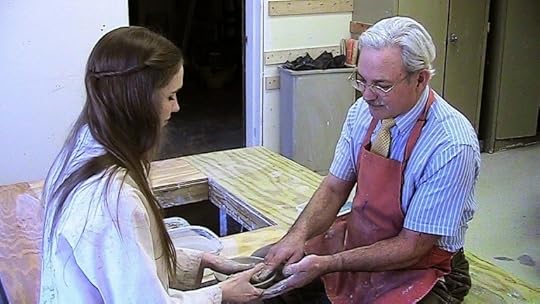 Maharishi School ceramics instructor Mark Wilkins, CrowdRise fundraiserWhen I was a kid, I remember my dad showing me a ceramic seal he had sculpted when he was a student at Oceanside, California, in his art class.
Maharishi School ceramics instructor Mark Wilkins, CrowdRise fundraiserWhen I was a kid, I remember my dad showing me a ceramic seal he had sculpted when he was a student at Oceanside, California, in his art class. He showed it to me and my brother when our family was getting ready to travel south to vacation with my aunt in San Diego. It was Dad's introduction for us to the environment where he was raised: ocean, waves crashing upon the beaches, and seals sunning on the rocks.
 It was a new environment for a boy used to valley heat and mountain pines. The pose of the sculpted seal was my introduction, touching the lines of musculature in the sculpture, the arched back and the nose pointing to the sky. Later, my brother and I saw these same poses in real-life seals, heard their barking and saw their awkward on-shore flippered shuffling. The sculpture my dad created contains all those elements, created 75 years ago, and now part of the legacy of my dad's time on earth.
It was a new environment for a boy used to valley heat and mountain pines. The pose of the sculpted seal was my introduction, touching the lines of musculature in the sculpture, the arched back and the nose pointing to the sky. Later, my brother and I saw these same poses in real-life seals, heard their barking and saw their awkward on-shore flippered shuffling. The sculpture my dad created contains all those elements, created 75 years ago, and now part of the legacy of my dad's time on earth.This is what came to mind when I learned of Maharishi School's CrowdRise fundraiser campaign to buy a new kiln for the school--not the students now, but my father as a student 75 years ago, given the at-school opportunity to sculpt into being some aspect of his life. I wish I could show you a photo of that sculpture, but it's 2,000 miles away, still in California with my mother.
Seeing Mark Wilkins in his ceramics class, guiding his students as they take clay and shape it into art, provided me with a revelation of the continuity of our lives and how our lives affect our children and grandchildren. When I was in the Cub Scouts, my dad carved a kerchief clip for my Scout uniform. I remember watching him carve and seeing the wolf's head emerge from the wood. It was a magical moment for me, and I wonder how much of my life as a writer, a creator with words, owes itself to moments of watching my parents create, of seeing those artifacts of my parents' artistry--objects my dad sculpted or carved, sketches that my mom had produced while in school. How much of my life as a writer owes itself to those teachers who let me create with words when I was at school?
We now have a chance to help Maharishi School continue its tradition of establishing an educational environment that promotes creativity in all fields of life. A ceramic cup today, a new medical device years later. We have alumni producing such innovations right now. It's time now to purchase a kiln for the next 30 years of creative young students at Maharishi School.
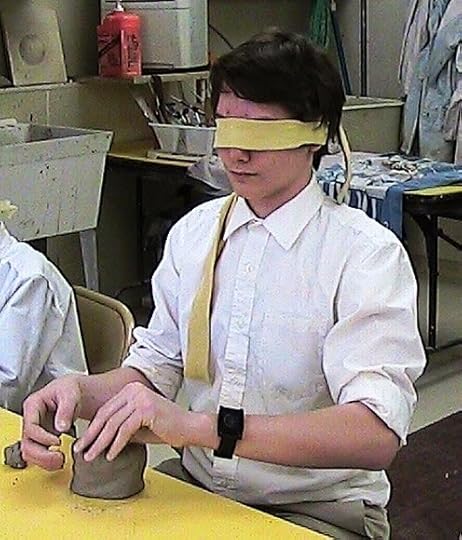
So get fired up about our new kiln and connect with the CrowdRise page. Listen and view a video clip about our ceramics program by Mark Wilkins. We're about 25% on the way to achieving our goal, having only been fundraising for less than a week. Most likely, 75 years from now, someone will be drinking from a mug or looking at a sculpture and just plain feeling good that creativity and expression exist in the world. They always have and always will, especially with a little extra boost from us.
[image error]
Published on February 12, 2015 08:55
February 4, 2015
Success and Fulfillment
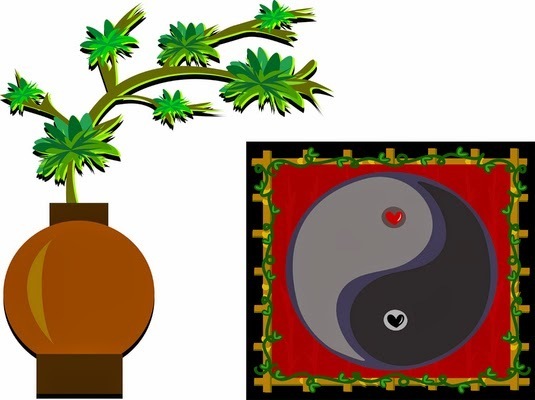 I was a school teacher for thirty-four years. I remember during my student teaching experience, one of my supervising teachers telling me, "You learn a lot of things in those education classes, but one thing they don't teach you is how to be a dedicated, effective teacher and still have time for a successful marriage." He was divorced at the time. I also remember reading an interview by a well-known contemporary poet who said that the time and commitment necessary to become a successful writer could be hard on a marriage.
I was a school teacher for thirty-four years. I remember during my student teaching experience, one of my supervising teachers telling me, "You learn a lot of things in those education classes, but one thing they don't teach you is how to be a dedicated, effective teacher and still have time for a successful marriage." He was divorced at the time. I also remember reading an interview by a well-known contemporary poet who said that the time and commitment necessary to become a successful writer could be hard on a marriage.One measure of success as a writer (and some would say the only) is how many books an author sells. I'm not going to bother debating that mindset, since there is some obvious sense to it. However, at just past my 63rd birthday, I find I've lost my desire to work full time, help my family full time, and then to write full time. There was a time when I did that all at once. I don't begrudge that time; I just feel the need to adjust the "timing" of my life. And, luckily, I think I have the opportunity to adjust without discomforting anyone.
I find myself more interested in the success of my total life, not just my writing life. I find myself not wanting to defer fulfillment in one area of life in order to shift that "currency" to some other area of my life. I think I've had considerable success in my life, and now I want to experience the fulfillment that has come with my dedication and commitment. Each in its own time, including fulfillment.
I intend to write; in fact, I've never stopped writing. I just think I'll focus on managing my time so that I do one thing at a time, do each thing well, take the time to enjoy the fruits of my action, and then move on.
Heck, I should have been doing that my whole life! Too much multi-tasking makes Tom if not a dull boy, certainly a frenetic one.
Copyright 2015 by Thomas L. Kepler, all rights reserved [image error]
Published on February 04, 2015 05:00
January 28, 2015
10 Reasons Why I Approve of My Niece's Fiance
 Of course, I trust and respect my niece's judgement, but I'm glad my first impression was a good one. I'm glad niece and fiance came to meet the Keplers. Below are the details that influenced my positive impression (sometimes iterated through negative definition).
Of course, I trust and respect my niece's judgement, but I'm glad my first impression was a good one. I'm glad niece and fiance came to meet the Keplers. Below are the details that influenced my positive impression (sometimes iterated through negative definition).He drove up in a mild-mannered, pale blue car, possibly a Toyota or Honda. I didn't pay much attention. It was not painted with flames, though, and it was not a monster truck. I did not hear the bass-booming of speakers before the car appeared.Getting out of the car, he did not flash about eight inches of underwear because of his low-hung pants. His baseball hat was not on backwards or sideways. In fact, he was not wearing a hat. No facial tattoos or lip, eyebrow, nose, or tongue piercings adorned his face.He shook my hand, no knuckle bashing. I don't remember his first words, but they were something along the lines of "Hello," or "Nice to meet you." He might have used "Tom." I remember being grateful that he didn't call me "Kepdawg."He brought flowers for my ninety-year-old mother.At one point, he stood and looked at displayed photos of my father, commenting on the WWII photos of my dad in Alaska. He had lived in Alaska also. At one point, my niece moved so that her fiance could sit next to my mom and talk into her good ear. (Well, her better ear, anyway--25% with her hearing aid.)He is a web developer. When I asked the difference between a web designer and web developer, his response was articulate.Keeping in mind that he will be contributing to my niece's happiness: he is tall, has dark hair, and is handsome. You go, Karen!When I asked if anyone wanted tea, he didn't say, "Got a brewski?" nor did he say, "What, no booze? WTF?!"When leaving, he bent way down to hug my five-foot-tall mom. Later, she said, "He's a tall one!"He was dignified and respectful his entire visit. On leaving, he didn't peel out, burn rubber, smoke the tires. I always thought doing that with front-wheel drive looks kind of silly anyway.
 I've only met him once, but I think he has special qualities. My niece and he look at one another as if they share a special universe. There's this special force that surrounds them.
I've only met him once, but I think he has special qualities. My niece and he look at one another as if they share a special universe. There's this special force that surrounds them.I plan to do my best to make it to the wedding. I hope nobody minds if I show up on my bike!
Copyright 2015 by Thomas L. Kepler, all rights reserved[image error]
Published on January 28, 2015 20:04
January 3, 2015
Having Fun in the Snow . . . Not on a Bicycle but on a Bicycle Blog!
Published on January 03, 2015 05:36
December 29, 2014
Book Review: The Golden Princess by S.M. Stirling
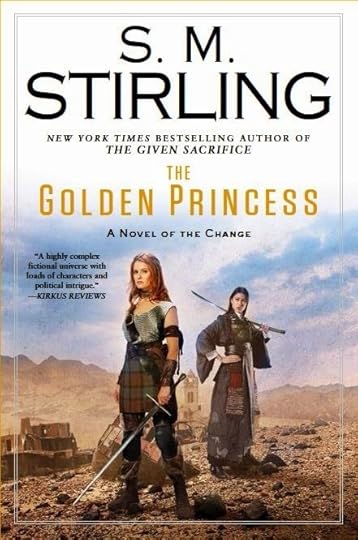 "Quantity has its own quality." Readers of S.M. Stirling's the Change series are familiar with this saying. It's true for the eleven alternative reality novels written about the "Change," when the Someone or Something, maybe "alien space bats," took our toys away from us, and the world is jammed back to using medieval technology . . . more or less.
"Quantity has its own quality." Readers of S.M. Stirling's the Change series are familiar with this saying. It's true for the eleven alternative reality novels written about the "Change," when the Someone or Something, maybe "alien space bats," took our toys away from us, and the world is jammed back to using medieval technology . . . more or less.Out of these eleven novels, some are better than others, but the quantity of words in total has its own quality, carving an alternative reality quite interesting in its speculation of how cultures evolve and how people react to catastrophic change. The Change series begins its third cycle with the novel The Golden Princess, with the coming of age of the third generation since the lights-out year of 1998.
Dies the Fire is the first novel of the series, and in the five-hundred-page novel, five pages at the beginning set the "prior to adventure" reality, and then the story launches into action. Therefore, one percent of the novel is the set-up. In The Golden Princess, the first major action is around twenty percent of the way through the novel, and this is the pattern of the novel--a little action and lots of characterization and travelogue.
The "travelogue" aspect isn't all that bad for someone like me who has read the earlier ten novels. For instance, I found it interesting when the Rangers, modeled after the Dunedain of Tolkien's novels, expand their forest steadings to the old forest redwood groves of California (now Westria). I found it interesting to read about how Generation One assassins have mellowed (more or less) in late middle age. I found it interesting how the McClintock blue-tattooed clan is structured. But as Stirling leads us through third-generation Montival, describing how the from-the-ashes societies have evolved and providing backstory for where they started from and from whom, the plot sluggishly progresses. Mark you, having read the earlier books, I found the anthropological detail interesting, but I had to accept the author was in no hurry to get on with the action--that's for later books, I assume. (I hope!)
If you've read the ten previous novels, enjoy the author's wide angle lens on Montival, enjoy some glimpses of the Far East, and forgive the fact that this is an introduction for a new generation of readers who have stepped in on the story anew with this book. If you are a new reader, consider this Stirling's attempt at the Canterbury Tales. Meet the characters, listen to their stories, and know going in that the story has no ending.
Thank the gods that quantity has its own quality; therefore, I can give this novel a just-past-the-bar three-star rating. It's OK. If I hadn't read the earlier ten novels and therefore found the anthropology interesting, I believe I'd have despaired. You know, Stirling didn't have an easy job, beginning a new cycle of Change novels while simultaneously providing backstory for the last ten. Now that it's done, though, please don't dilly-dally so with the next novel, Stephen Michael. I believe I might just be that Someone who pulls the plug on the next book.
Copyright 2014 by Thomas L. Kepler, all rights reserved[image error]
Published on December 29, 2014 05:00




